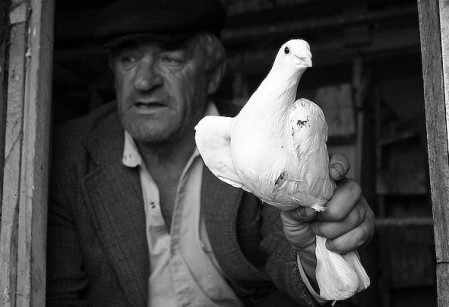
Last Sunday, parliamentary elections were held in Transnistria, where 123 candidates vied for 43 seats in the local Supreme Council. With the counting of the votes still ongoing, the favorite to hold on to parliament in this 530,000-strong quasi-state is the “Renovation Party”, which has also controlled the majority of seats in the past. For those who may be wondering, Transnistria is this long and narrow strip of Eastern Moldova bounded on one side by the Dnestr River and on the other by Ukraine.
After the dissolution of the USSR, Transnistria broke away from Moldova over fears that the former Soviet republic would seek reunification with neighboring Romania. In 1992, Moldova and Transnistria fought a short war which ended with a Russian-mediated settlement, enforced by Russian troops already stationed in the region. From the very first day, therefore, the breakaway region of Transnistria depended on Russia for support. Under growing international pressure, however, Russia then went on to sign the Treaty on Conventional Armed Forces in Europe at a 1999 OSCE summit in Istanbul, under which it pledged to withdraw all its troops and military equipment from Transnistria by 2002.
This pledge was, however, not adhered to.
In the years since, Transnistria has turned into the seventh heaven of organized crime. Under the conveniently inobservant eyes of the Russian soldiers, the Transnistrian government – and in particular its president – are involved in all forms of criminal activities, ranging from money-laundering, over the manufacturing and smuggling of weapons, to trafficking in human beings and drugs. Today, it is an open secret that the region’s leader, Igor Smirnov, and his son, Vladimir, have a near exclusive control over lucrative criminal activities in the area.
Meanwhile, merely one month ago, the third parliamentary elections within the last two years were held in neighboring Moldova. Unsurprising, these left the country, as so many times before, with a hung parliament and an inconclusive result. And adding insult to injury, after Communist complaints of “massive irregularities”, the Constitutional Court has now even ordered a recount, thus bringing in further insecurity, instability, and potential for chaos.
Yet the main problem for both Moldova and Transnistria remains the question of their identity. After nearly two decades of independence, the country’s citizens are not only the poorest in Europe (with an average monthly salary of around 180 Euro), but also still at odds over the basic question of who they are, who they belong to, and who they want to trust.
With Russia being unwilling to lend a hand to either Moldova or its breakaway territory, it is now high time for Europe to step in. It needs to induce the region’s elites to reach an internal consensus, to concentrate on modernization and to bring regional politics closer to EU standards. Not that the EU has been completely inactive in the past: Brussels has been floating the idea of Moldovan EU integration for some time now, and the EU openly aims for Europe and the US to become fully accredited mediators in Transnistria on par with Russia, Ukraine and the OSCE.
Were these changes to materialize, the EU stands to gain widely, as it could present itself as a key regional player and pillar of security. Just like during the Georgian crisis of August 2008, the EU would be able to assert its role as an indispensable player in the sphere of European security and as the only party capable of brokering a peace deal. Moscow, on the other hand, has only very little to gain from any changes to the status quo. By facilitating either Transnistrian integration into Moldova, or Moldova’s political embedding into the EU, Moscow would weaken its own position as the core of the post-Soviet integration project it has crafted in the past.
But for the sake of all Moldovans, Transnistrians and the entire neighborhood, something must be done. Allowing the region to fall further into poverty or, even worse, leaving it in the merciless hands of the mob cannot possibly be the solution. This regional tragedy is taking place on both the European and Russian doorstep. Someone needs to open the door and have a look. It seems it will have to be the EU.
Check out the ISN’s resources on Moldova or Transnistria for further information.

